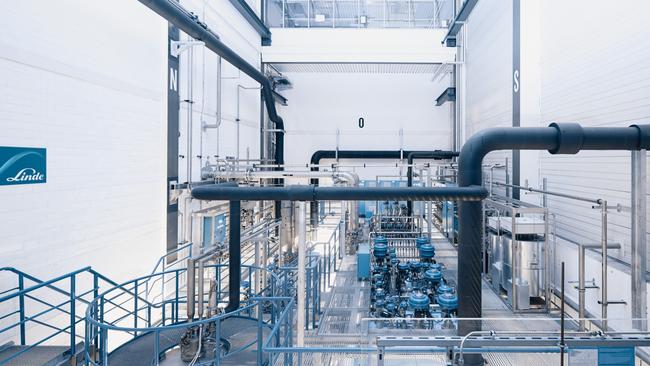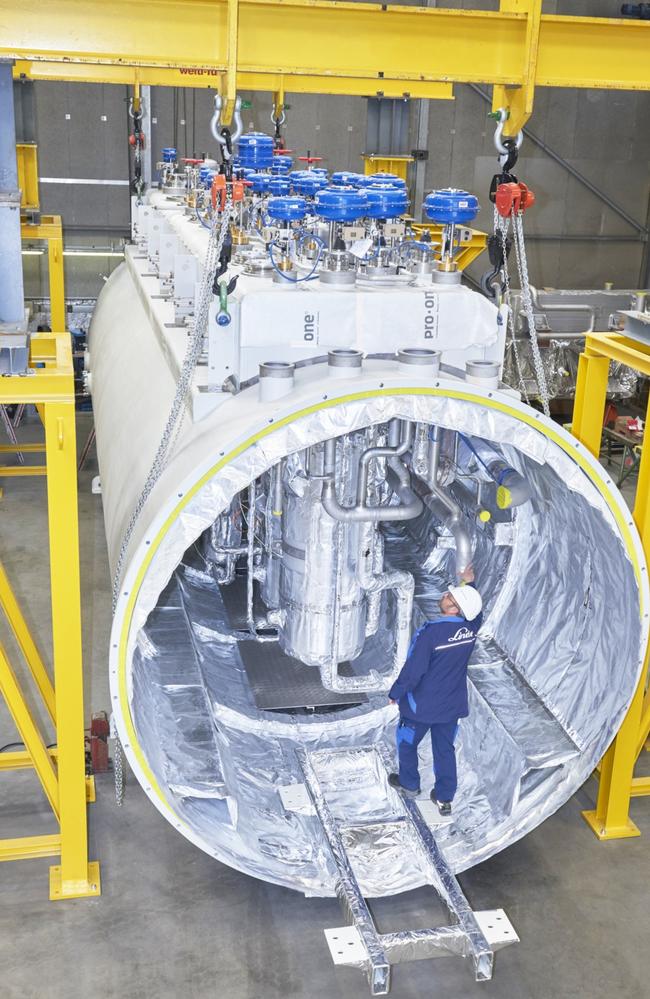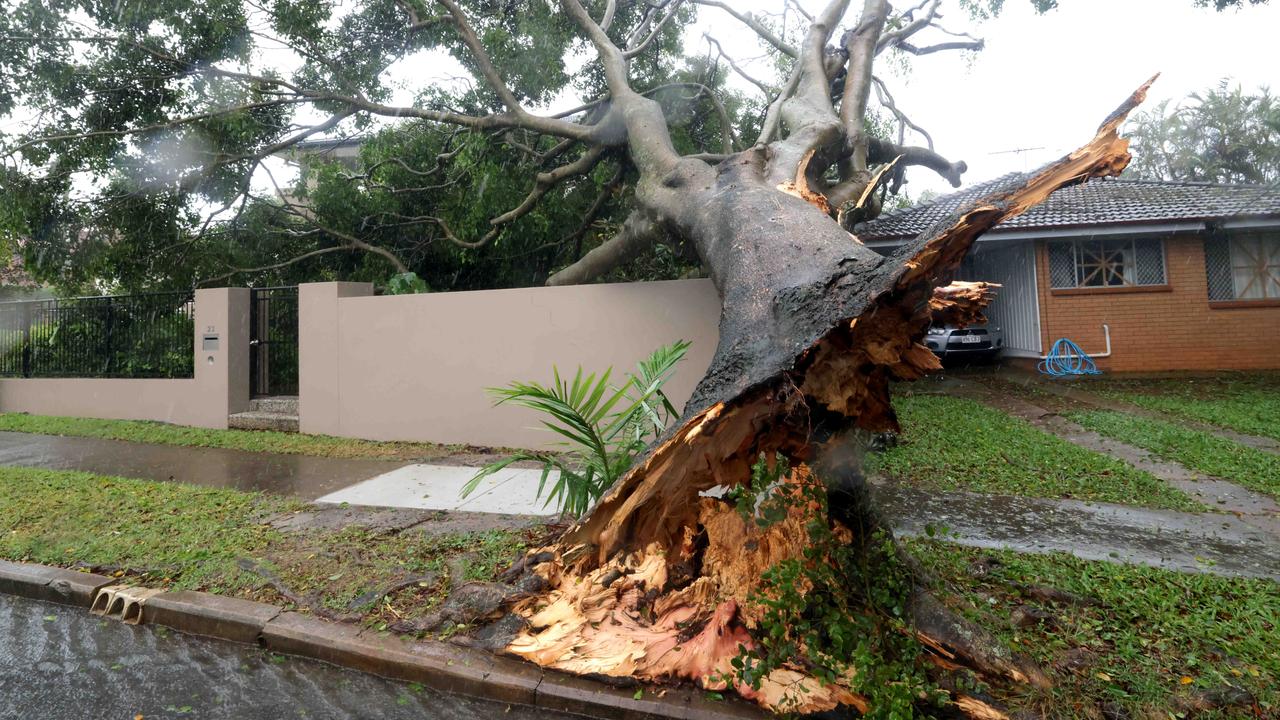Refrigerator size of a supermarket will power quantum future from Brisbane
A German-built fridge, colder than space, is headed to Brisbane, where it will power PsiQuantum’s bold plan to build the world’s first full-scale quantum computer.

QLD News
Don't miss out on the headlines from QLD News. Followed categories will be added to My News.
A giant fridge the size of a supermarket is heading to Brisbane, marking a major milestone in the global race to build the world’s first large-scale quantum computer.
PsiQuantum, the Silicon Valley company behind a cutting-edge quantum project near Brisbane Airport, has ordered the biggest cooling systems ever built for quantum computing.
The plant, basically the most powerful refrigerator in Australia, will cool the company’s quantum computer to a staggering 4 Kelvin, or -269°C.
It will be more than 250 C colder than anything in your kitchen with an average home freezer sitting at about -18°C.
It will be nearly as cold as outer space which is a chilly 2.7 Kelvin, meaning PsiQuantum’s system is just a few degrees warmer than the coldest place in the universe.
Built by German firm Linde Engineering, the cryoplant will cover nearly 3437 square metres and will cool helium gas into liquid helium to keep PsiQuantum’s quantum chips cold enough to do their job.
Once built and tested in Europe, the facility will be shipped to Brisbane and put together by local engineers.
It will then be part of PsiQuantum’s facility which will be the world’s first commercial-scale quantum computer expected to make breakthroughs in drug discovery, clean energy, agriculture and mineral processing.
PsiQuantum co-founder and chief executive Jeremy O’Brien: “We appreciate collaborating with a world-class firm like Linde Engineering … for a fundamental scaling advantage and a key reason we are able to move rapidly toward utility-scale quantum computing.”

Most quantum computers today use “qubits” made from matter, such as atoms or superconducting circuits, which are extremely sensitive to heat and need to be cooled to temperatures just a hair above absolute zero, or about -273°C, colder than anything ever built at scale.
But PsiQuantum, uses light particles, called photons, instead of matter which means the system does not need to be as cold and can process the information at -269°C.
Since PsiQuantum doesn’t need exotic new freezers, it has been able to move more quickly toward building a full-sized, working quantum computer — one with millions of qubits.
That’s the magic number when quantum computers are expected to start solving real-world problems such as predicting climate change or discovering new drugs.
The Brisbane project is backed by the Queensland Government’s $470 million quantum investment strategy, and this cryoplant is a central piece of the puzzle.
Linde Engineering senior vice president John van der Velden said the project showed how global collaboration could drive big leaps in innovation.
“This technology will help design solutions to address some of the most pressing challenges faced by society today,” he said.
Linde has built more than 500 cryogenic plants for MRI machines, semiconductors, and particle accelerators but this will be its first specifically built for a quantum computer, and the largest cryoplant for quantum computing.





